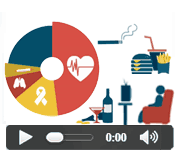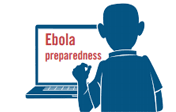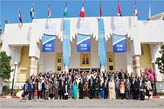Pre-RC61 Session on
“Health Technology Assessment (HTA)”:
A Tool for Evidence-Informed Decision Making in Health
Rationale:
Health Technology Assessment (HTA)[1] has become an important tool for informed decision-making by Ministries of Health. It is one of the new decision-making approaches in which cost-effective and cost-benefit evaluations are included to make purchase decisions in a given budget for Health Technologies (HT). It contributes to reducing waste and inefficiencies resulting from inappropriate investments in HT. It also contributes to the provision of quality health service delivery. HTA is a tool not only for developed countries but also for developing countries working towards Universal Health Coverage (UHC).
Actions by WHO and other global health organizations are necessary to support regional and national HTA initiatives for the purpose of encouraging Member States (MS) to integrate HTA into their decision-making processes, to start national initiatives, and to establish and participate in regional HTA networks for information sharing and exchange of experience. WHO can provide guidance on the implementation of national HTA programmes and support capacity-building in the use of HTA approaches which will contribute to moving towards UHC.
Key Messages:
The session will aim to debrief Ministers and delegates on
- HTA as an important tool for supporting the core functions of an effective global health system in any country.
- Steps to be followed by MS for successfully developing an HTA programme within their national health systems.
- Regional and global HTA experiences and approaches which can be used by nationals to come together in order to advance the knowledge and effective uptake of HTA in their local settings.
- HTA structures that have resulted in a HT-investment policy approach that made the Ministry accountable for its decisions to the population, especially those related to new and emerging technologies.
Expected Outcomes:
In contrast to what most officials think; the less the resources in developing and emerging countries, the more the need for HTA to make rational decisions on investments; prioritize needs on the basis of evidence; and estimate cost vs. efficacy/effectiveness ratios of new and emerging technologies.
The session is expected to demonstrate to MS and officials
- Appropriate use of HTA in a country - matched against its capability, capacity and need- and how it can be thought of as being located along a continuum of development.
- Different sources of HTA information and networks that assist in enhancing existing HTA capacities, finding and analyzing HTA information, and supporting decision-makers.
- Barriers associated with introduction of HTA within existing national health systems and how to overcome them.
- Successful and unsuccessful country experiences that can guide MS when initiating HTA progerammes within their local settings.
[1] HTA is a multidisciplinary decision-making process that uses information about the medical (clinical), social, economic, organizational and ethical issues related to the use of a HT (such as medicines, vaccines, biologicals, medical devices and clinical interventions) in a systematic, transparent, unbiased, and robust manner. It aims to support the formulation of safe and effective health policies that are patient focused and seek to achieve best value of money and improved patients’ health outcomes.













